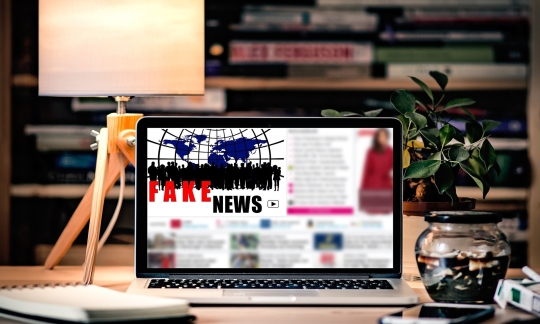Archives: Research
India and misinformation
Date Posted:
May 28, 2019
Last Modified:
May 28, 2019
Fake news: Can it save traditional, mainstream media?
Date Posted:
May 27, 2019
Last Modified:
May 27, 2019
The science of fake news: Addressing fake news requires a multidisciplinary effort
Date Posted:
May 27, 2019
Last Modified:
May 27, 2019
Social media research after the fake news debacle
Date Posted:
May 27, 2019
Last Modified:
May 27, 2019
A global inventory of organised social media manipulation
Date Posted:
May 27, 2019
Last Modified:
May 27, 2019
Fake news research project
Date Posted:
May 27, 2019
Last Modified:
May 27, 2019
Social media, political polarisation, and political disinformation
Date Posted:
May 27, 2019
Last Modified:
May 27, 2019
The new media's role in politics
Date Posted:
May 25, 2019
Last Modified:
May 25, 2019
Weeding out fake news: An approach to social media regulation
Date Posted:
May 25, 2019
Last Modified:
May 25, 2019
Fighting fake news and post-truth politics with behavioural science
Date Posted:
May 25, 2019
Last Modified:
May 25, 2019
Latest News
- Ad transparency tools will help users have a check over political ads in India
- Social media prone to more misuse and spread of misinformation at times of elections
- Facebook, Twitter and WhatsApp remove 500 posts in the last 48 hours
- Facebook adds a new feature to tackle "low-quality" content
- Fake news rampant with 1 in 2 Indians receiving it via WhatsApp, Facebook
- Facebook rep lands up at FB user's doorsteps
- FB takes AI help to shut down accounts spreading misinformation
- Facebook bans white extremist content in the US
- Users won't be added to WhatsApp groups without their consent
- WhatsApp launched Tip line ahead of general elections
Latest Controversies
- Facebook, Google pressured EU expert group to soften fake news regulations
- Facebook patent plans to scan users' photos for ads
- Facebook bans white nationalist and separatist content
- Almost 9% of Facebook accounts are fake, says company
- Facebook stored millions of passwords unprotected
- Facebook caught lobbying against data privacy laws
- Apps share sensitive user data with FB
- News algorithm draws ire from advertisers
- Facebook users cannot avoid location-based ads
- Facebook exempts tech giants from privacy wall
Featured Investigation
Featured Article



